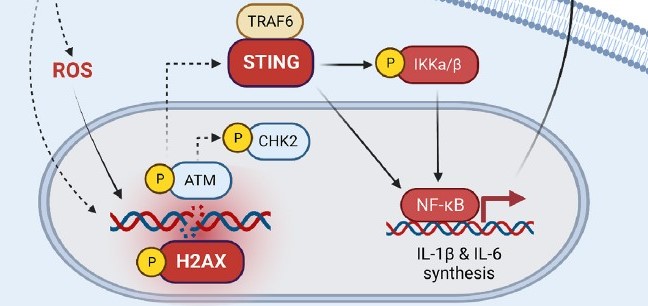Is Momentum Building for an Epstein-Barr Virus Vaccine?
Post Date: January 14, 2022 | Publish Date:

Multiple sclerosis (MS) is a devastating disease of the central nervous system that affects over 2 million people worldwide. MS is caused by both genetic factors encoded in DNA and environmental risk factors.
One long suspected environmental risk factor for MS is infection with the Epstein-Barr virus (EBV). Better known for its role in mononucleosis, EBV infection has been associated with MS numerous times through studies looking for evidence of current or past infection in groups of people with MS compared to groups of people who do not have MS.
In 2018, a group led by Matthew Weirauch, PhD, Leah Kottyan, PhD, and John Harley, MD, at Cincinnati Children’s published findings in Nature Genetics that identified a link between the environmental risk of EBV and the genetic risk of MS. They studied how EBV interacted with DNA of infected cells and found that a protein encoded by EBV called EBNA2 interacted with over half of the genetic risk factors for MS.
Read a blog post, watch a video about the 2018 study
In a follow-up study published in October 2021, in Genome Research, the investigators showed that the EBNA2 protein encoded by EBV rewires the way genes are expressed in B cells, in part through interactions with DNA encoding MS genetic risk loci.
This week, a group from Harvard published a definitive study in Science connecting EBV infection to the development in MS. This study was different than previous studies because it used blood samples from individuals who were enlisted in the US military and developed MS. The group found that the risk of developing MS was significantly higher (32-time higher) after a person was infected with EBV. By looking at other viral infections, they showed that the increased risk of MS was specific to EBV but not other viruses.
Taken together, these studies and others strongly support the use of a vaccine to prevent EBV infection as a way to drastically reduce the incidence of MS. In early January, Moderna initiated a clinical safety trial evaluating the safety of their EBV vaccine. Developed using the same technology as the widely successful COVID-19 vaccine, this could be the first EBV vaccine on the market.






